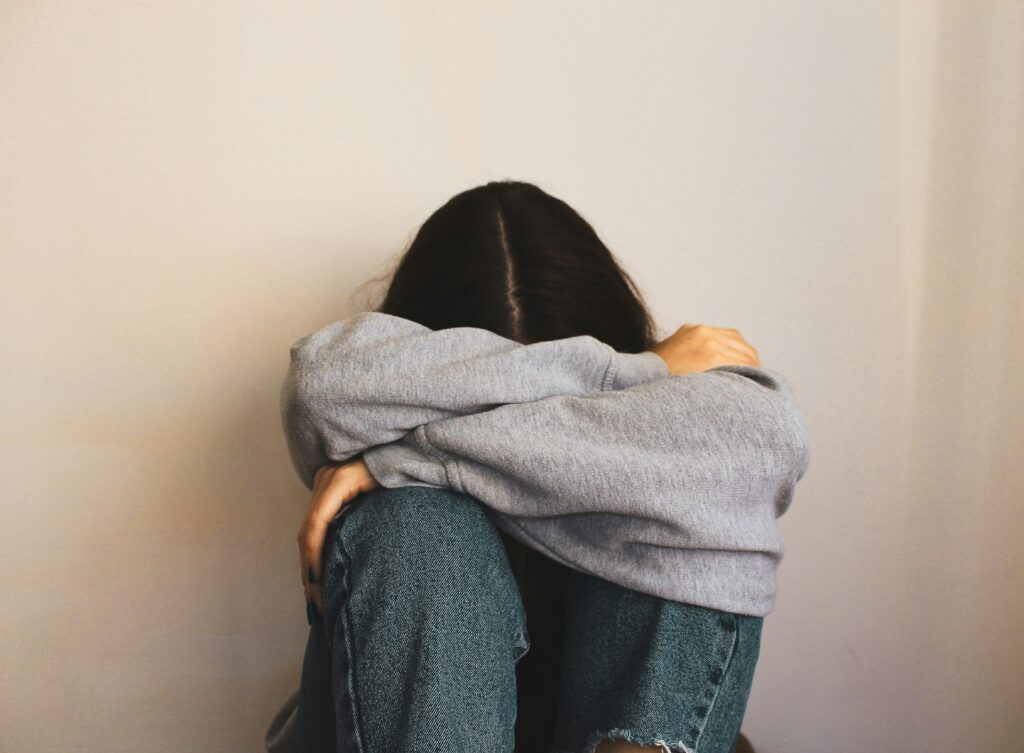How is it that in a world more connected than ever, we also feel more isolated and lonely than ever before?
You would think that with the rise of social media, the ease of communication, and the countless ways to call, chat, dm, and connect, people would feel less alone. But paradoxically, the opposite is true. More and more people feel alone, left behind, and forgotten by a fast-moving society.
In 2024, San Mateo County in California became the first in the US to declare loneliness a public health emergency, recognizing the severity of the issue.
Modern loneliness is less about physical isolation and more about emotional isolation, and its consequences are severe. That’s why, in the rest of this article, we’ll explore the loneliness epidemic and all the ways stigma is fueling mental illness and substance abuse.
The Roots of Modern Loneliness
Loneliness isn’t just about not having people physically near you. It’s about feeling disconnected, unseen, or misunderstood by others. Friends, family, or coworkers can surround you and still feel devastatingly, utterly alone. Numerous factors, including traumatic events, unfulfilled relationships, social expectations, and mental health issues like anxiety or depression, might contribute to this emotional detachment.
For many, the experience of loneliness is deeply intertwined with stigma. The more someone feels like they don’t belong, the deeper their loneliness becomes. And when someone is struggling with a mental health issue or substance abuse, the stigma they face only compounds this feeling. This, in turn, further fuels their issues with battling addiction and mental health problems.

In the area of social media and endless possibilities for connection, people feel more alone than ever before. By Carolina on Unsplash
How Stigma Exacerbates Loneliness
For many, the stigma associated with addiction and mental health disorders is one of the biggest obstacles to getting treatment. Those in need, looking for help, are frequently characterized by society as “weak,” “broken,” or “irresponsible.” Because of these negative stereotypes and prejudice, people are discouraged from asking for help, confiding in close friends and family, or seeking professional assistance. Instead, many people suffer quietly out of fear of being judged or criticized.
Imagine having to bear the heavy burden of anxiety, depression, or addiction and feeling like you have to hide it at the same time.The stigma associated with being perceived as “different” or “flawed” can cause the affected people to withdraw even more. This vicious circle of seclusion and isolation only serves to exacerbate the emotional suffering. Desperation grows as loneliness develops, and for many, the only way to deal with it is to numb the emotions, usually with drugs or alcohol.
Mental Illness and Loneliness: A Dangerous Feedback Loop
Mental illness and loneliness are frequently inextricably linked. Individuals with depression, for example, tend to withdraw from social activities. Similarly, anxiety can make social encounters seem overwhelming and scary, driving people into isolation. When someone is battling with mental health problems, their opinions of themselves and their value are often warped. They see themselves as a burden to others, which leads them to cut ties with their loved ones and other parts of their support network.
Loneliness caused by mental illness can intensify its symptoms. For example, depression tends to worsen when someone thinks they have no one to talk to, no one around them who cares. Similarly, anxiety can feel paralyzing when someone believes they’re navigating life completely alone. Altogether, this creates a hazardous feedback loop: loneliness exacerbates mental illness, which worsens loneliness. When you add stigma to the mix, they might start believing that they don’t deserve help or that others won’t understand their pain. The result? A growing population of people silently battling both mental illness and overwhelming loneliness.
Substance Abuse
Many people who are lonely turn to substances like alcohol or drugs as a temporary coping mechanism. The transitory comfort or numbing effect might provide a temporary respite from emotional suffering. Unfortunately, relief is fleeting, eventually leading to more serious problems. Substance misuse may swiftly lead to addiction, locking people in a cycle of dependence.
Addressing the deep connection between loneliness, mental illness, and substance abuse requires access to supportive environments that prioritize holistic treatment. In California, the growing recognition of these intertwined issues has led to the development of specialized care options that focus on both mental health and addiction recovery. This approach is crucial in breaking the cycles of isolation that fuel these conditions. Facilities offering drug rehab in California are particularly effective because they understand the importance of treating the whole person, not just the addiction. Only this approach can provide a pathway to lasting recovery and reconnection with others.

To numb the unpleasant feelings, many people turn to alcohol and other addictive substances. By Vignesh Moorthy on Unsplash
The Role of Community and Connection
The antidote to the loneliness epidemic isn’t necessarily surrounding yourself with people; it’s feeling seen, heard, and understood. Connection, at its core, is about being able to share your authentic self with others without fear of judgment. For those battling loneliness, mental illness, or substance abuse, finding a supportive community can be life-changing.
Therapy and support groups can be particularly useful since they help to break down stigma. Individuals are encouraged in these situations to be candid about their difficulties without fear of being judged. Whether it’s a mental health support group, a 12-step program, or individual treatment, these settings provide a sense of connection and belonging, which can help break the cycle of loneliness.
Addressing the Root Causes
To truly address the loneliness epidemic, we need to focus not just on its symptoms but its root causes. As we already mentioned, stigma, in particular, plays a significant role in keeping people trapped in isolation. By removing the stigma associated with mental illness and substance misuse, we can foster a more compassionate and supportive community.
Here are some ways we can work together to battle the epidemic:
- Encourage open dialogue: Conversations about mental health and addiction should be normalized, both in private and in the media. When people hear others discussing these difficulties, they feel less isolated.
- Support mental health initiatives: Schools, companies, and communities may all develop mental health programs that teach individuals about the impacts of loneliness and the significance of getting the help and support they need.
- Encourage empathy and understanding: We can all make a difference just by being present for those in our lives. Listening without judgment, providing support, and demonstrating empathy will go a long way toward making someone feel less alone.
- Challenge stigmatizing narratives: Media depictions of mental illness and addiction can perpetuate negative stereotypes. We can begin to change public opinions by promoting more realistic, caring tales.

Support and empathy play a huge role in battling the loneliness epidemic.. By Helena Lopes on Unsplash
In Conclusion
The loneliness epidemic is real, and it’s fueling a surge in mental illness and substance abuse. While the connection between these problems is obvious, so is the way ahead. By removing the stigma associated with loneliness, mental illness, and addiction, we can start to build a society in which individuals feel supported rather than alone. Loneliness flourishes in quiet, but with open hearts and minds, we can begin healing the epidemic together.
Bio:
Lauren Barry is a licensed marriage and family therapist. When she’s not working with patients, she’s sharing valuable online sources to promote the causes she cares about.
Resources:
https://www.samhsa.gov/mental-health/mental-health-substance-use-co-occurring-disorders
https://trueaddictionbh.org/loneliness-epidemic-mental-illness-substance-abuse-resources/
Feature image by Melk Hagelslag from Pixabay


